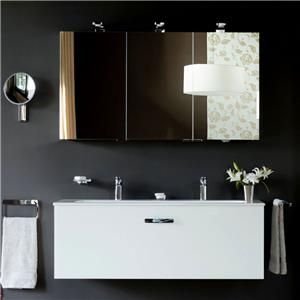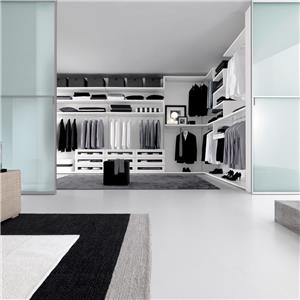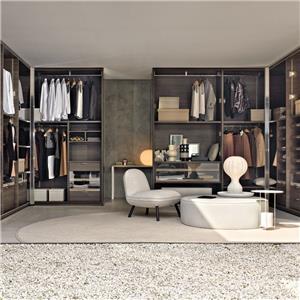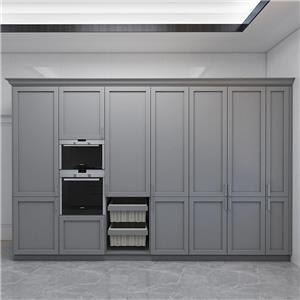4 Popular Designs for Interior Doors
4 Popular Designs for Interior Doors
As an indispensable element within interior spaces, doors play a crucial role by combining practicality and aesthetic appeal. Their significance cannot be overstated, as a well-designed door seamlessly integrates functionality with decor, elevating the overall ambiance and spatial experience. In this article, we will explore four captivating interior door designs that strike the perfect balance between functionality and aesthetics, adding both beauty and utility to any living space.
1. Sliding Door
Sliding doors refer to doors that can be pushed or pulled to open. They are commonly used in residential spaces, maximizing space efficiency and facilitating functional division and utilization of rooms. Additionally, sliding doors offer advantages in terms of lighting, soundproofing, visual obstruction, and enhanced decorative appeal, catering to various spatial needs.
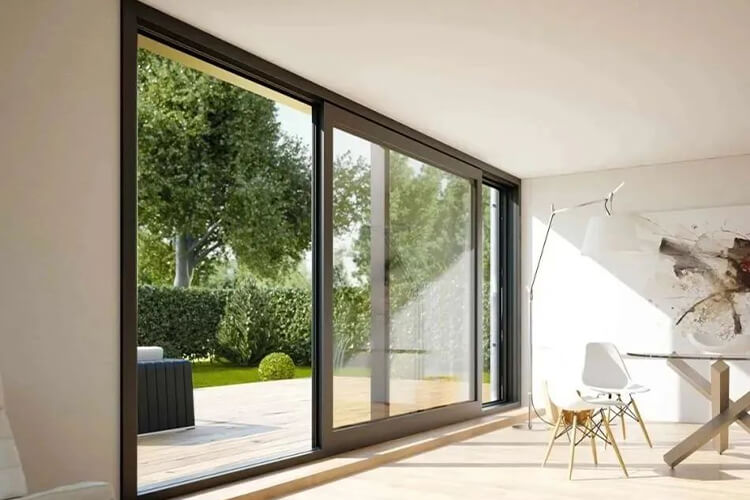
Trackless Sliding Doors: These are supported by an overhead track, allowing the doors to slide in parallel without a lower track.
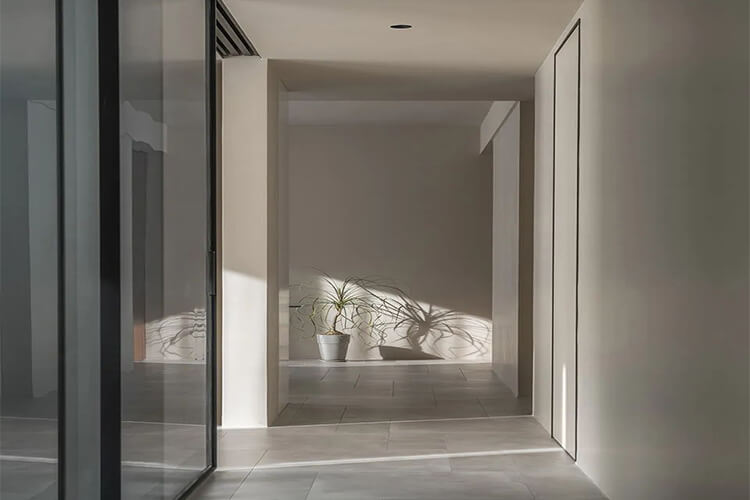
Floor Track Sliding Doors: Also known as bottom track sliding doors, they have both upper and lower tracks. The upper track acts as a guide, while the lower track bears the weight and facilitates sliding.
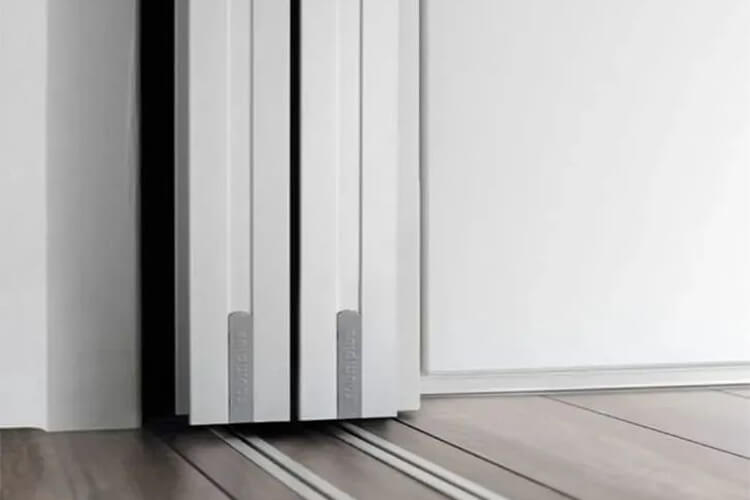
Concealed Track Sliding Doors: Also known as ghost doors, these operate similarly to trackless sliding doors, without a visible lower track. The doors are supported by top-mounted track rollers, and the track is concealed to achieve a hidden appearance.
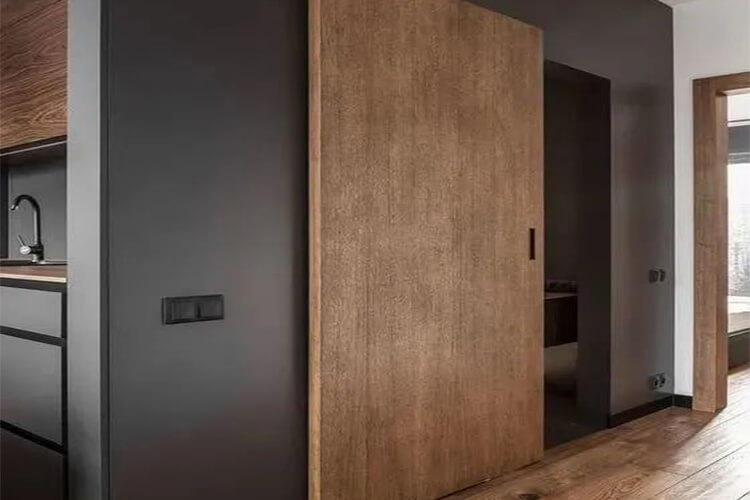
The choice between floor track and trackless sliding doors depends on different priorities. Here are some aspects to compare their pros and cons:
Stability: Floor track > Trackless track. Floor track sliding doors provide better stability as the track is on the ground, ensuring a more secure operation without wobbling.
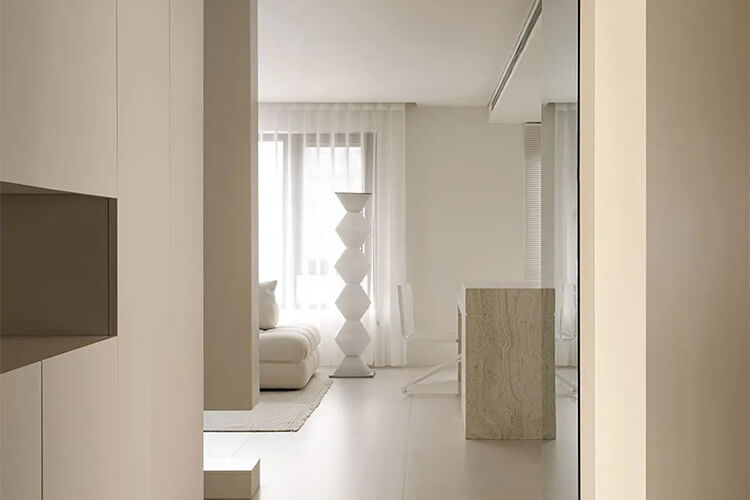
Cleaning Difficulty: Floor track > Trackless track. Floor track sliding doors are easier to install and do not require specific requirements for surrounding walls and lintels. However, they may accumulate dirt in the grooves, making them harder to clean. Trackless sliding doors, on the other hand, can be seamlessly integrated with floor tiles, making cleaning more convenient.
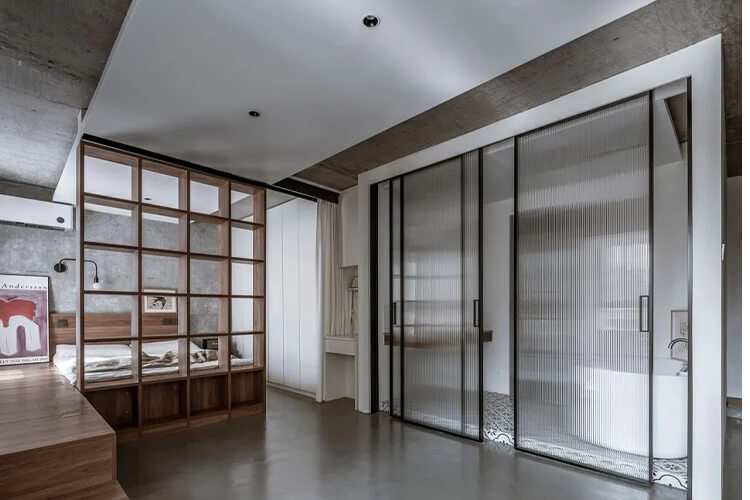
Price: Trackless track > Floor track. Trackless sliding doors involve more hardware components and higher requirements for hardware, resulting in a higher price compared to floor track doors.
2. Folding Door
Folding doors consist of multiple door leaves connected by rails and hinges, enabling them to fold open in either one or both directions. The door leaves can be supported by a bottom track or suspended from a top track for sliding.
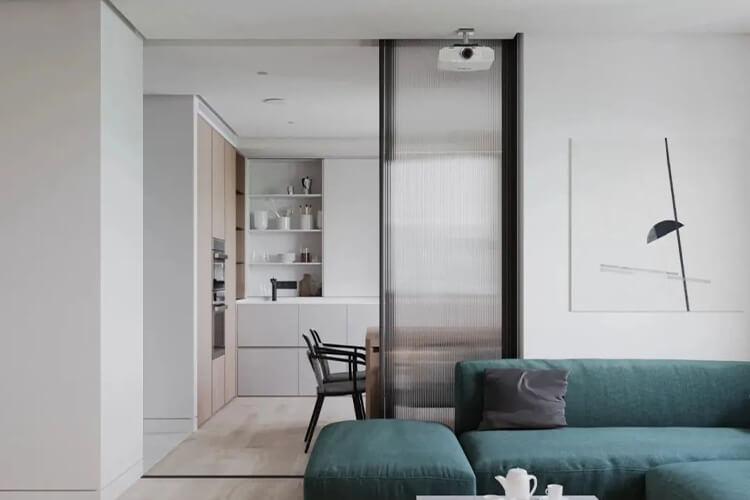
Type: Types of folding doors can be categorized based on various factors, such as the door opening method and the material used. They are divided into floor track-supported and suspended track-supported folding doors.
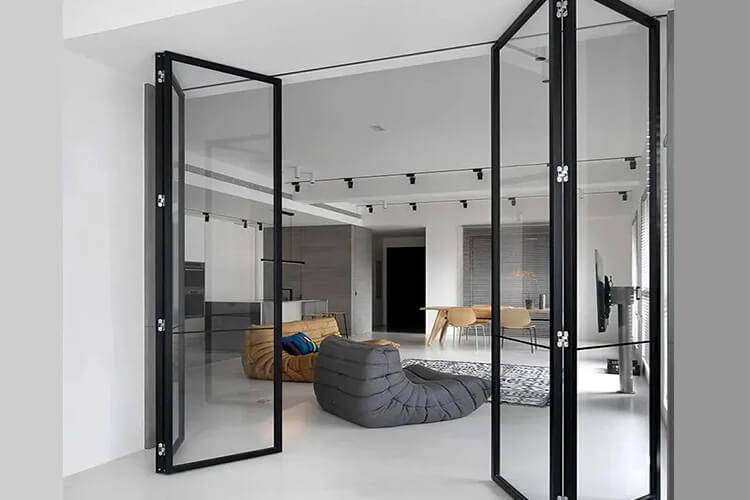
Distinctive Features of Folding Doors:
a. Versatile styles, combining aesthetics and practicality.
b. Wide opening range, providing unrestricted access.
c. Flexibility and space-saving characteristics.
d. Allow for seamless, unobstructed communication between spaces.
e. Offer superior performance in terms of thermal insulation, wind resistance, waterproofing, fire and moisture resistance, and noise reduction.
f. To achieve the same level of air tightness and thermal insulation as regular swing doors, folding doors may require higher production costs.
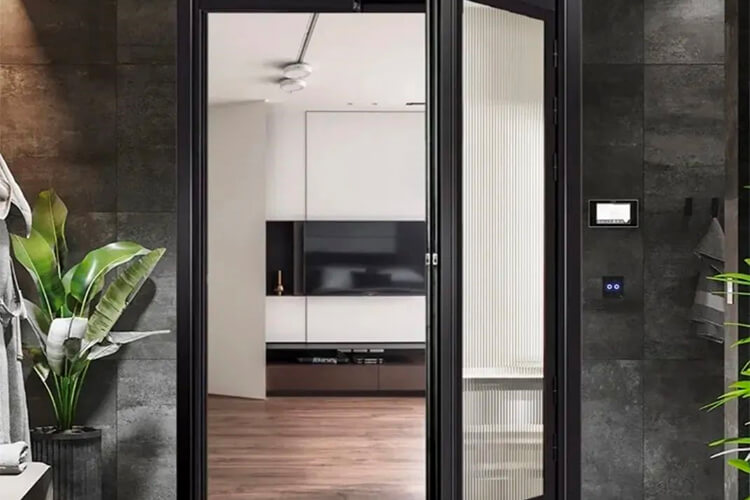
3. Hinged Doors (Swing Doors)
Hinged doors are doors that have their hinges installed on the side and open inward or outward. They typically consist of door jambs, hinges, door leaves, and locks.
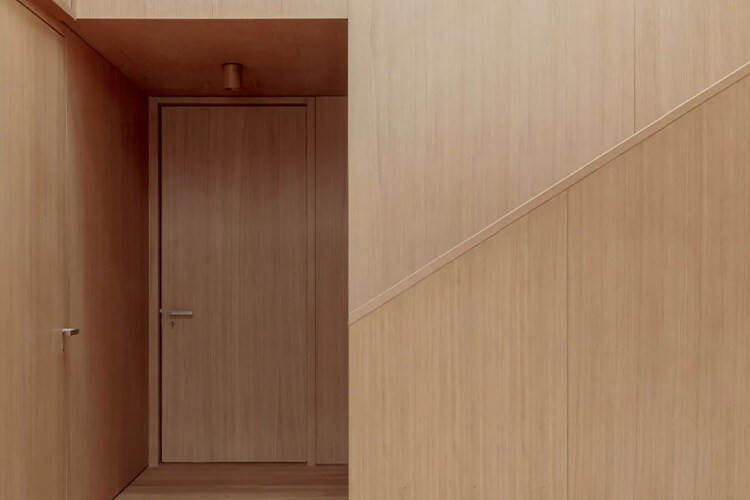
Distinctive Features of Hinged Doors:
a. Excellent sealing properties.
b. High level of security.
c. Good soundproofing.
d. Wide variety of material choices.
e. Compared to sliding doors, hinged doors require more space for operation.
One remarkable type of hinged door is the concealed hinged door, also known as an invisible door. This design utilizes a row of cabinets, creating a seamless entrance to another space.
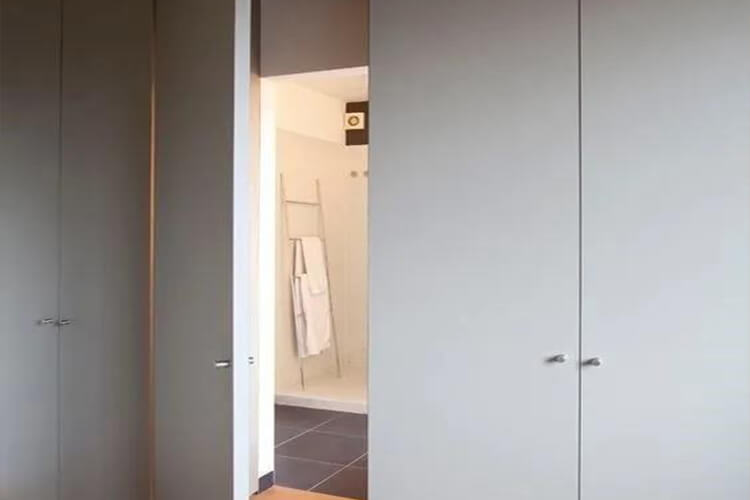
The key to a perfect concealed hinged door lies in its styling and attention to detail, ensuring a smooth integration with the wall and consideration for wall details before the door reaches the ceiling level.
4. Pocket Door
Pocket doors are doors that are recessed into the wall. They discard traditional hinges and use a track system to slide into or out of a wall cavity, making them a space-saving and aesthetically pleasing option.
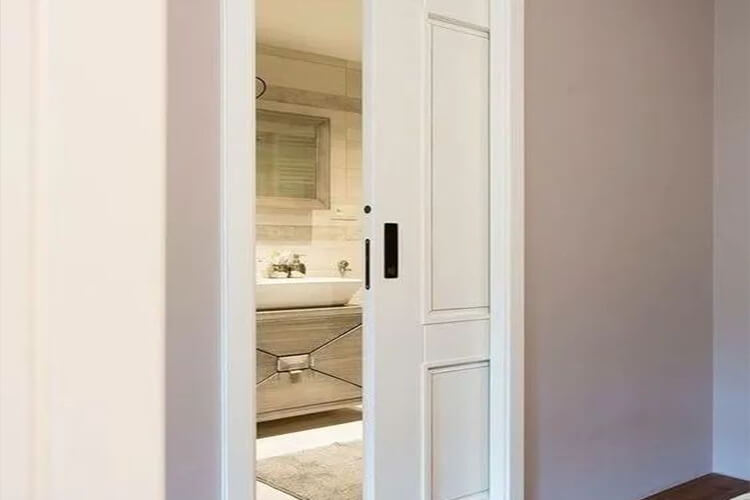
Advantages
Pocket doors only occupy wall thickness and do not encroach on interior space. This makes them a suitable choice for small kitchens, bathrooms, and other compact areas.
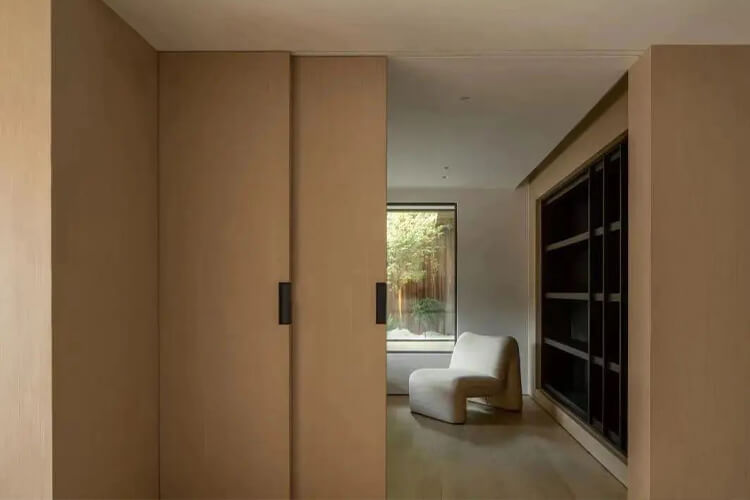
Implementing pocket doors may involve wall demolition or the construction of new walls. These doors can be completely hidden within the wall, offering flexible space division options. They can be fully closed or partially open, meeting both functional and decorative needs, and are suitable for use in studies, office areas, and walk-in closets.

